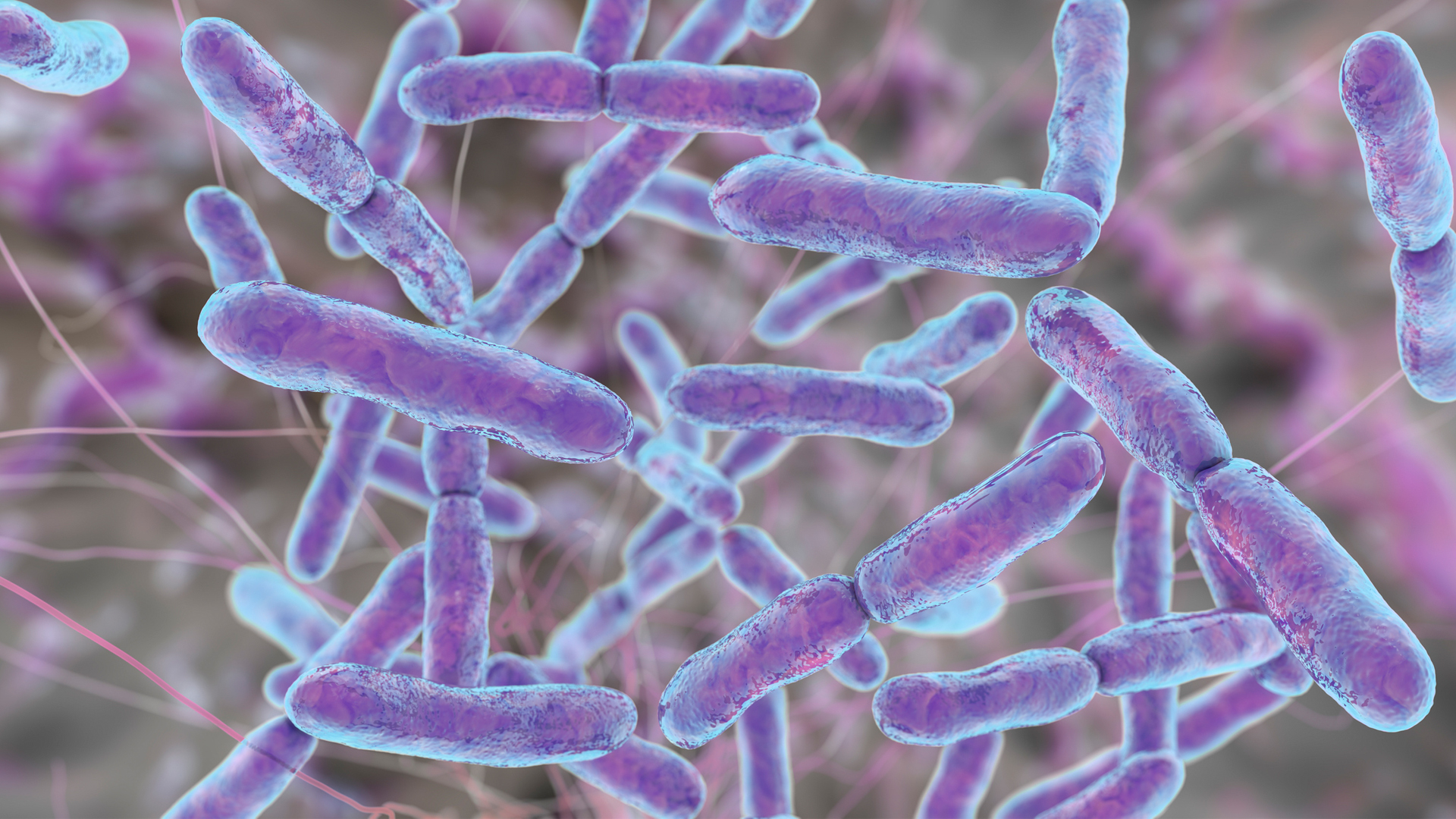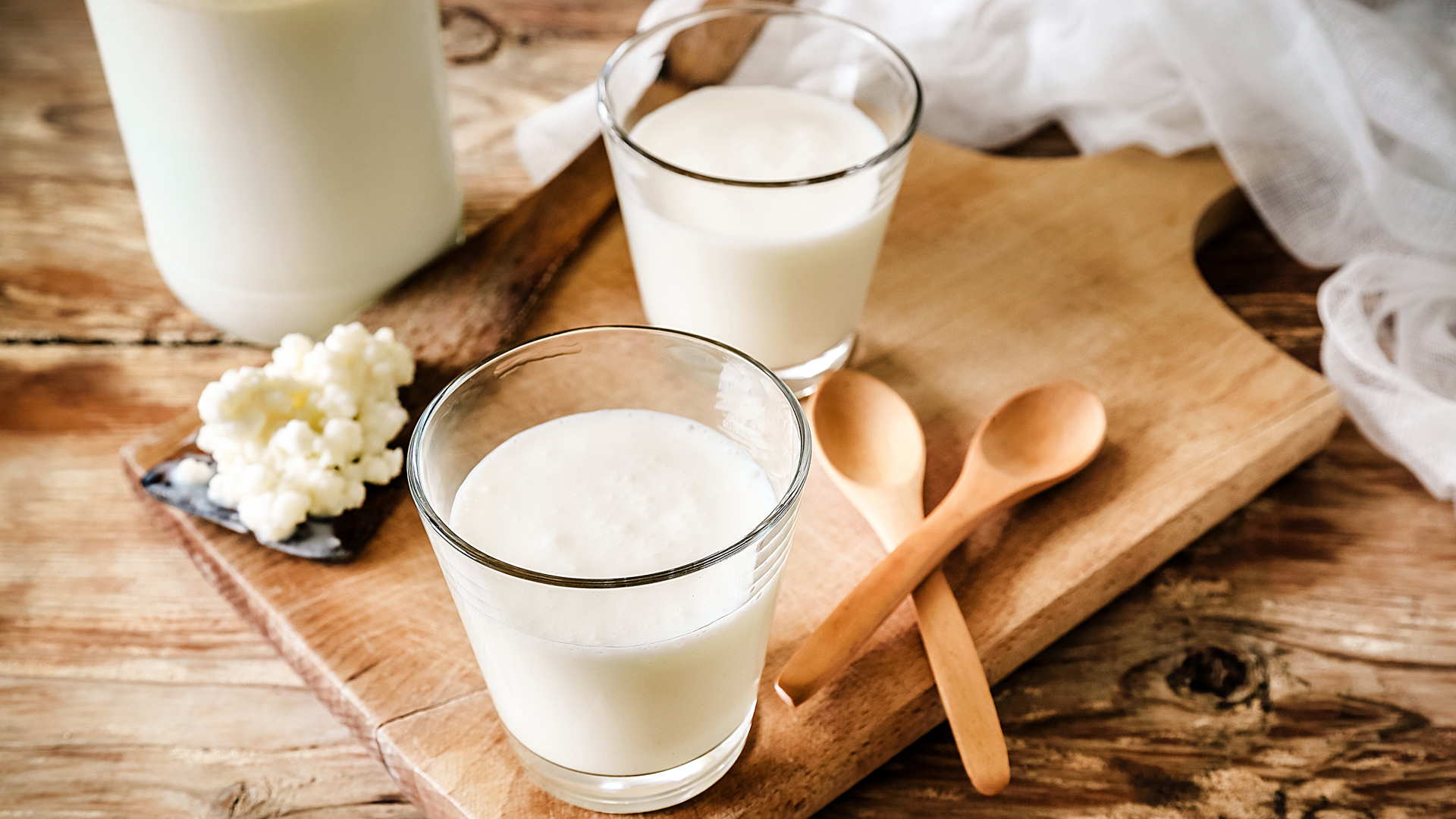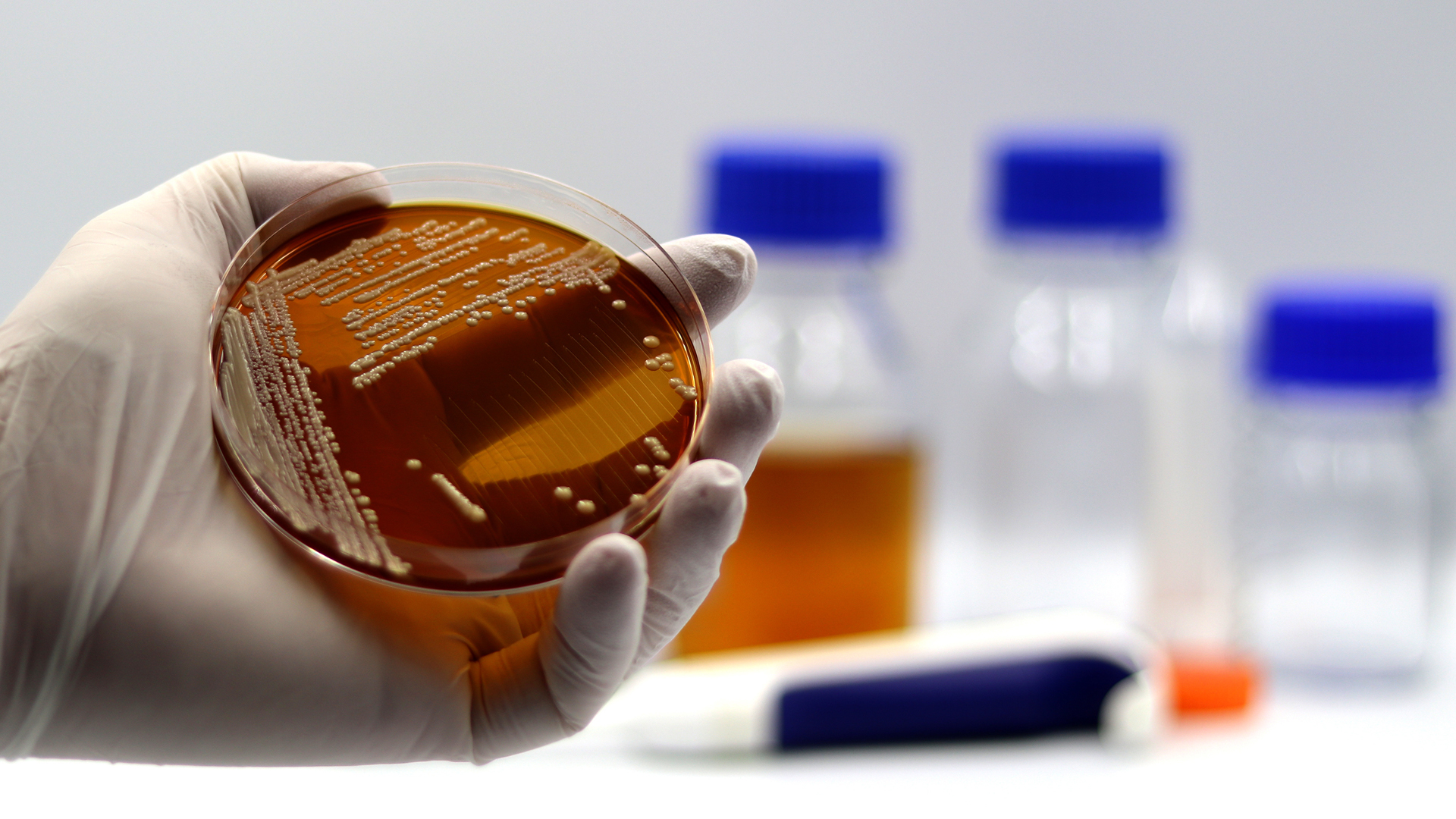Do probiotics help IBS?
Looking for advice on irritable bowel syndrome and wondering, 'do probiotics help IBS?' – we break down the science

Irritable Bowel Syndrome (IBS) is one of the most common gastrointestinal disorders, yet we know surprisingly little about how to treat it. With no definitive cure in sight, many of those who experience it wonder whether using probiotics for IBS management is a good idea.
Indeed, there’s evidence that probiotics – strains of bacteria and yeasts that can provide health benefits when ingested alive – can improve our gut health. Initial results from research studies into irritable bowel syndrome are also promising. In fact, the National Institute for Health and Clinical Excellence now recommends that probiotics can be used for at least four weeks for managing the symptoms.
However, simply popping the best probiotic may not be enough to solve the problem. How effective probiotics for IBS are may depend on multiple factors, including the dose, type and amount of supplement used, as well the length of the treatment. What’s more, probiotic supplements may not benefit every IBS sufferer the same way. In some cases, they may worsen the digestive symptoms.
In this article, we discuss how probiotics can help those with IBS, which strains appear to be the most beneficial, and what to look for in a probiotic supplement. However, before you decide to manage IBS with probiotics, make sure to consult your doctor first.
- Related: Probiotics vs digestive enzymes
What is IBS?
The National Institute of Diabetes and Digestive and Kidney Diseases defines IBS as a cluster of digestive symptoms, such as repeated bouts of pain in your abdomen, diarrhea, constipation and bloating. Most people experiencing this condition will have normal bowel movements on some days, and experience unpleasant symptoms on other days. IBS is different to Inflammatory Bowel Disease (IBD), as it does not damage any tissues within the digestive tract and is not life-threatening.
IBS is triggered by disordered interactions between the gut and the brain. When this vital communication channel is disrupted, the gastrointestinal tract becomes more sensitive and changes how the muscles in your bowel contract. Changes in the bowel movements are the direct cause of many digestive symptoms.
There are three types of IBS, based on the most-experienced symptom:
- IBS with constipation (IBS-C): on days when you have at least one abnormal bowel movement, most of your stools are hard and lumpy.
- IBS with diarrhea (IBS-D): on days when you have at least one abnormal bowel movement, most of your stools are loose and watery.
- IBS with mixed bowel habits (IBS-M): on days when you have at least one abnormal bowel movement, your stools are both hard and watery on the same day.
Can probiotics help IBS?
“Probiotics are known to help restore a healthy gut microflora and lining, necessary to assist in the efficient digestion of foods, regular healthy bowel movements, support immunity and have been reported to improve IBS symptoms in some people,” says Kim Plaza, a nutritionist and technical advisor at Bio-Kult.
The latest research confirms that probiotics can be useful in managing the symptoms of IBS. However, how effective they can be may depend on several factors. According to a systematic review published in the journal Nutrients, 63.6% of analyzed studies reported that supplementation with probiotics in IBS patients significantly improved symptoms compared with placebo, whereas the remaining 36.4% did not report any significant changes. Researchers noted that the best results were obtained in trials that used multiple bacteria strains and lasted for eight weeks or more.

How do probiotics help with IBS symptoms?
One of the tell-tale signs of IBS is dysbiosis. This is a term used to describe an imbalanced gut microbiota – when there are more ‘bad’ microbes than ‘good’. As described in the World Journal of Gastroenterology, probiotics have been shown to inhibit the growth of pathogenic bacteria by adhering to the intestinal cells and thus preventing them from taking space and growing. This mechanism prevents the so-called leaky gut syndrome in which the overgrowth of harmful microbes weakens the barrier between gut and bloodstream, allowing foreign bodies to enter the circulatory system.
Another common feature in IBS is inflammation within the gut. Multiple studies have shown that probiotics can reduce inflammation and regulate immune system responses.
Which probiotics help with IBS symptoms?
The gut microbiota is a complex system consisting of approximately 300-500 bacterial species. They all have different roles in the body and all require different conditions to thrive. As such, not all probiotics will have the same effect on the IBS symptoms.
“There are two main probiotic treatment groups for IBS, lactobacillus and bifidobacterium, which help to restore balance in the gut,” says Abbas Kanani, a pharmacist at Chemist Click. “They are an important part of the detoxification process, improving overall gut health and can be taken in vitamin form or, preferably, from natural sources like yogurt, kefir, kombucha, and kimchi.”

We still don’t know much about which particular strains work best, but the research so far is bringing promising results. According to a meta-analysis published in Frontiers in Cellular and Infection Microbiology, strains like Bacillus coagulans, Lactobacillus plantarum and Lactobacillus acidophilus may produce the best results. Researchers are hopeful about Bacillus coagulans as it tends to be the most effective at reducing abdomen pain and bloating. Similarly, another recently published meta-analysis confirmed the beneficial effect of strains like Bacillus coagulans and Lactobacillus plantarum.
There’s a growing interest in a particular strain of Bifidobacterium bifidum, namely MIMBb75. The Alimentary Pharmacology & Therapeutics journal published a trial in which supplementation with this strain significantly improved several different symptoms of IBS, including abdominal pain, bloating, and fecal urgency. Interestingly, it appears that this bacteria does not have to be ingested in live form to produce results either. The results from a study published in the Lancet Gastroenterology journal suggest that heat-inactivated Bifidobacterium can still successfully ease symptoms of IBS. Inactive probiotics are more likely to be stable in harsh conditions, they’re easier to standardize than active probiotics and they may reduce the risk of infection in susceptible individuals.
Given that there are different types of IBS, different types of probiotic strains may be most applicable.
IBS-D
If your primary symptom is diarrhea then you likely suffer from IBS-D. According to a meta-analysis published in the EClinicalMedicine journal, Saccharomyces boulardii is one the best probiotics for IBS when it comes to reducing diarrhea, abdominal pain and stool frequency.
It’s worth noting though that S. boulardii is a yeast, and therefore it has different properties to bacteria. It’s considered to be a ‘transient’ probiotic as it does not colonize for long in the gut. Therefore it’s a good idea to take a probiotic containing S. boulardii alongside other ‘good’ bacteria as they work synergistically.

IBS-C
If you have recurring problems with constipation, you likely suffer from IBS-C. Bacteria from the Bifidobacterium appear to be the most effective at stimulating bowel movements in this condition. Results from the study published in The British Journal of Nutrition suggest that Bifidobacterium lactis BB-12 strain may be particularly helpful for those battling with constipation. Findings from a 2012 study indicate that supplementation with both Bifidobacterium lactis BB-12 and prebiotics was particularly effective at shortening the intestinal transit time.
IBS-M
Many people with IBS experience alternating symptoms of bloating, pain, constipation, and diarrhea. It can be difficult to decide which symptom to target in this condition. One option could be to try a high-quality probiotic for all-round gut-support, ideally containing multiple different strains from both the Lactobacillus and Bifidobacterium families.
According to the Nutrition Journal, strains like Lactobacillus acidophilus NCFM and Bifidobacterium lactis Bi-07 were found to not only regulate bowel movements, but to also relieve bloating, abdominal distension, and abdominal cramps. Meanwhile, researchers from the Scientific Reports journal point to the beneficial effects of Bacillus coagulans Unique IS-2 strain.
Should you take probiotics if you have IBS?
Most scientists agree that it is too early to recommend the use of probiotics as a primary treatment for IBS. It’s likely that certain strains may significantly improve one or two digestive symptoms, but the majority of probiotics are unlikely to cause tangible improvements. On the other hand, probiotics are safe, widely available and relatively cheap. In the absence of effective medications, these supplements can bring some relief to many with IBS.
There are a few things to remember when choosing your probiotic supplement. First, make sure that its composition is evidence-based, meaning that good-quality research supports its role in alleviating IBS. Secondly, never exceed the dose recommended by the manufacturer, and take them according to the instructions on the label. Give them time to work and be prepared for potential side effects.

“I would suggest starting any probiotic or fermented food slowly, especially for those with a sensitive gut,” says Plaza. “Any sudden increase of beneficial bacteria in the digestive system could potentially cause symptoms, such as bloating, as they interact with unwanted strains, but should subside within a few days once your body becomes accustomed to increased dosage.
“Starting slowly could prevent those with IBS from being put off continuing with their probiotic. Probiotic companies generally recommend taking them with food as the food buffers the acidic pH of the stomach that is designed to destroy bacteria.”
Remember that certain probiotic supplements contain additional ingredients that could make your digestive symptoms worse. Components like inulin, lactose, fructose, sorbitol and xylitol may trigger gastrointestinal problems in sensitive individuals.
On the other hand, probiotics may actually worsen the symptoms of IBS in some people, especially those with Small Intestinal Bacterial Overgrowth (SIBO). According to a review published in the Current Gastroenterology Reports, SIBO is a serious condition that occurs when there is an abnormal increase in the overall bacterial population in the small intestine.
Symptoms of SIBO often include:
- Loss of appetite
- Pain in the abdomen
- Nausea
- Bloating and/or an uncomfortable feeling of fullness after eating
- Diarrhea
- Unexplained weight loss
- Malnutrition
With SIBO, probiotic supplements may end up worsening the IBS. “There is a risk that probiotics can get trapped in the small intestine and worsen symptoms if patients have SIBO,” says Kanai. “It is advisable to take a breath test for SIBO before treating IBS with probiotics.”
At the same time, there’s evidence that probiotics may help treat some of the SIBO symptoms. According to a study published in the Journal of Clinical Gastroenterology, probiotics may reduce abdominal pain and the levels of breath hydrogen (marker for SIBO contamination). However, they’re not effective at preventing this serious condition.
This article is for informational purposes only and is not meant to offer medical advice.
Sign up for the Live Science daily newsletter now
Get the world’s most fascinating discoveries delivered straight to your inbox.

Anna Gora is a health writer at Live Science, having previously worked across Coach, Fit&Well, T3, TechRadar and Tom's Guide. She is a certified personal trainer, nutritionist and health coach with nearly 10 years of professional experience. Anna holds a Bachelor's degree in Nutrition from the Warsaw University of Life Sciences, a Master’s degree in Nutrition, Physical Activity & Public Health from the University of Bristol, as well as various health coaching certificates. She is passionate about empowering people to live a healthy lifestyle and promoting the benefits of a plant-based diet.










